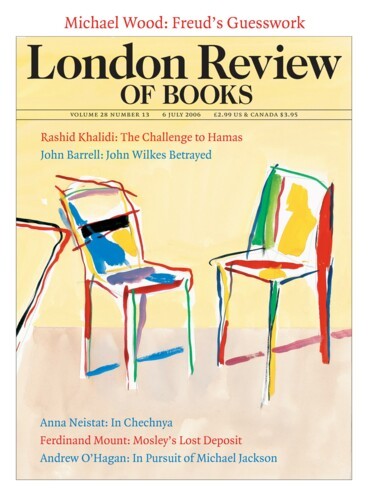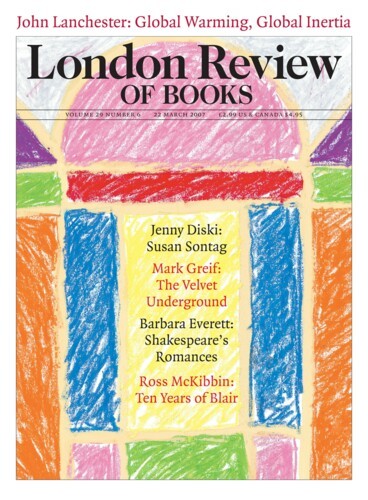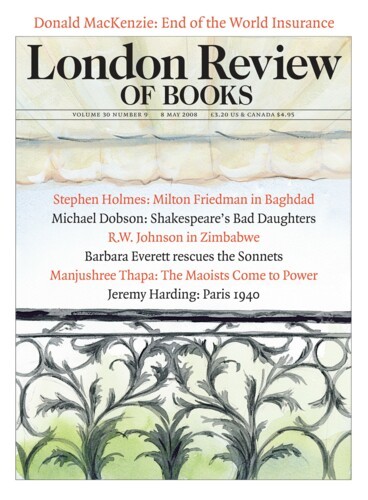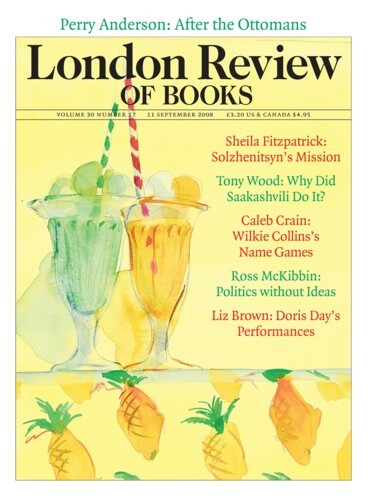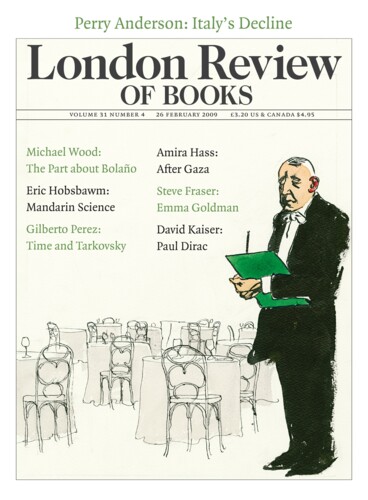Tony Wood
Tony Wood teaches history at the University of Colorado Boulder. Russia without Putin: Money, Power and the Myths of the New Cold War was published by Verso in 2018.
Diary: Chechnya
Tony Wood, 22 March 2007
The drive to Grozny from Nazran, in neighbouring Ingushetia, takes about an hour and a half. We speed past a cluster of Russian soldiers at the roadside while we are still in Ingushetia; shortly afterwards two Mi-8 helicopters come barrelling overhead at low altitude – signs of continuing military operations, in this ‘post-conflict zone’. The Kavkaz-1 checkpoint on the...
Art Is a Cupboard! Daniil Kharms
Tony Wood, 8 May 2008
An old woman leans out of her window and, ‘because of her excessive curiosity’, leans too far: she falls to the ground and shatters to pieces. A second old woman leans out of her window to see what has happened to the first – and also leans too far, tumbling to the same fate. More women follow suit (a third, a fourth, a fifth, a sixth), a chain that ends only because the narrator of this story, ‘sick of watching them’, breaks off to go to the market.
What Condoleezza Said: Why Did Saakashvili Do It?
Tony Wood, 11 September 2008
The conflict in South Ossetia has produced a cloud of rhetoric that seems to have grown in inverse proportion to the intensity of fighting on the ground. Once the outcome became clear – a crushing Russian military victory – Cold War imagery flooded the Western press. Far more than the status of a tiny mountainous enclave in the South Caucasus was said to be at stake: not only was Georgia’s territorial integrity imperilled by Russian tyranny, but the future of democracy was under threat. In the Washington Post of 11 August, Robert Kagan asserted that the conflict will be seen as ‘a turning point no less significant’ than the fall of the Berlin Wall. Given this ‘much bigger drama’, ‘the details of who did what to precipitate Russia’s war against Georgia are not very important.’
A Preying Misery, a Gnawing Ache
26 February 2009
Podcasts & Videos
Tony Wood and James Meek: Russia without Putin
James Meek and Tony Wood
Tony Wood talks to James Meek about his book Russia with Putin, which looks at, among other things, the legacy of Soviet infrastructure and the extent of political opposition in today’s Russia.
Read anywhere with the London Review of Books app, available now from the App Store for Apple devices, Google Play for Android devices and Amazon for your Kindle Fire.
Sign up to our newsletter
For highlights from the latest issue, our archive and the blog, as well as news, events and exclusive promotions.
